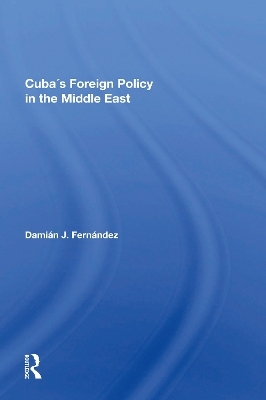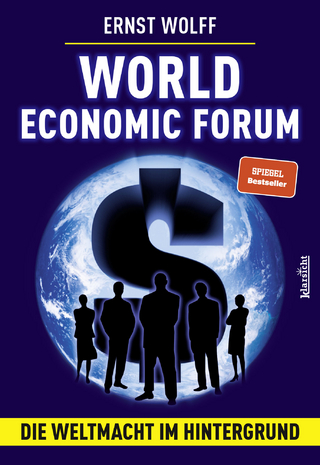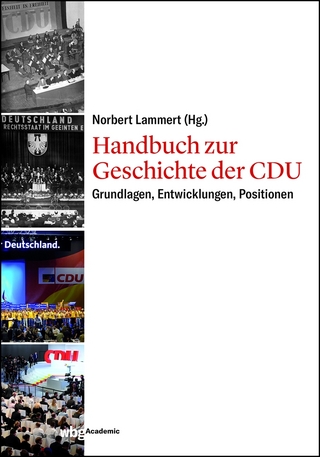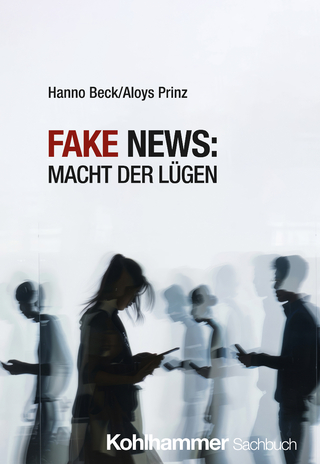
Cuba's Foreign Policy In The Middle East
Seiten
2023
Routledge (Verlag)
978-0-367-16375-4 (ISBN)
Routledge (Verlag)
978-0-367-16375-4 (ISBN)
This study of Cuba's initiatives in the Middle East will serve to explain Cuba's foreign policy in its interaction with the Soviet Union in the Third World must include heretofore neglected variables: time; regime type; and factionalism (bureaucratic politics), in addition to external events.
In spite of the growing academic interest in Cuba's international relations in the revolutionary period. Cuba's policy toward the Middle East has been a neglected field of study. Although the Middle East has not been a high priority item on Fidel Castro's agenda, various factors have combined to propel the regime into taking a more active stance in the region, not least of which is the importance of the Middle East to the Soviet Union. Some of these factors have been ideological, such as the nature of Castroism itself. Other factors have been more pragmatic: the need to increase Cuba's leverage with the Soviet Union; the desire to establish spheres of interest of its own in the Third World; the attempt to use external politics to soothe internal problems and the wish to maximize the prestige of the Cuban revolution, and, by extension, that of its lider maximo. Since 1959, Havana's Middle Eastern policy has experienced four stages: (1) 1959-1973: Autonomous foreign policy, marked by a dual relationship with both Israel and the Arab states. (2) 1973-1977: Accommodation to the Soviet line; anti-Israeli policy combined with an expansion of relations with progressive states, signalled by the establishment of Cuban military missions. (3) 1977-1980: Activist policy in the region, expanded role and development of diplomatic relationships. (4) 1981 to the present (1985): Cautious involvement; restrained activism, emphasizing socio-economic cooperation. Cuba's incursion into the Arab world illuminates how Cuban foreign policy works, especially in relation to autonomy, convergence, and subordination; dependence, pragmatism, and ideology. The island's entrance into Middle East politics has introduced new risks into the island's foreign policy in return for the benefits which have been derived. A theory to explain Cuba's foreign policy in its interaction with the Soviet Union in the Third World must include heretofore neglected variables: time; regime type; and factionalism (bureaucratic politics), in addition to external events. The study of Cuba's initiatives in the Middle East will serve to test this theory.
In spite of the growing academic interest in Cuba's international relations in the revolutionary period. Cuba's policy toward the Middle East has been a neglected field of study. Although the Middle East has not been a high priority item on Fidel Castro's agenda, various factors have combined to propel the regime into taking a more active stance in the region, not least of which is the importance of the Middle East to the Soviet Union. Some of these factors have been ideological, such as the nature of Castroism itself. Other factors have been more pragmatic: the need to increase Cuba's leverage with the Soviet Union; the desire to establish spheres of interest of its own in the Third World; the attempt to use external politics to soothe internal problems and the wish to maximize the prestige of the Cuban revolution, and, by extension, that of its lider maximo. Since 1959, Havana's Middle Eastern policy has experienced four stages: (1) 1959-1973: Autonomous foreign policy, marked by a dual relationship with both Israel and the Arab states. (2) 1973-1977: Accommodation to the Soviet line; anti-Israeli policy combined with an expansion of relations with progressive states, signalled by the establishment of Cuban military missions. (3) 1977-1980: Activist policy in the region, expanded role and development of diplomatic relationships. (4) 1981 to the present (1985): Cautious involvement; restrained activism, emphasizing socio-economic cooperation. Cuba's incursion into the Arab world illuminates how Cuban foreign policy works, especially in relation to autonomy, convergence, and subordination; dependence, pragmatism, and ideology. The island's entrance into Middle East politics has introduced new risks into the island's foreign policy in return for the benefits which have been derived. A theory to explain Cuba's foreign policy in its interaction with the Soviet Union in the Third World must include heretofore neglected variables: time; regime type; and factionalism (bureaucratic politics), in addition to external events. The study of Cuba's initiatives in the Middle East will serve to test this theory.
Damian J. Fernandez Doctor of Philosophy (PhD), University of Miami
| Erscheinungsdatum | 20.07.2023 |
|---|---|
| Verlagsort | London |
| Sprache | englisch |
| Maße | 152 x 229 mm |
| Gewicht | 317 g |
| Themenwelt | Sozialwissenschaften ► Politik / Verwaltung |
| ISBN-10 | 0-367-16375-6 / 0367163756 |
| ISBN-13 | 978-0-367-16375-4 / 9780367163754 |
| Zustand | Neuware |
| Haben Sie eine Frage zum Produkt? |
Mehr entdecken
aus dem Bereich
aus dem Bereich
Grundlagen, Entwicklungen, Positionen
Buch | Hardcover (2023)
wbg Academic (Verlag)
40,00 €


